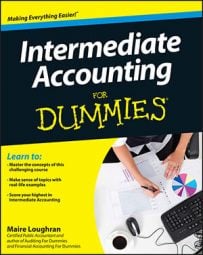Interest is a type of passive income. Interest is revenue you earn from money on deposit. You take the earned income left over after you pay your bills, deposit it into a savings or money market account (or any other type of investment), and, while you’re sleeping, walking on the beach, or working hard at your job, your invested money is making more money for you — you hope.
It’s pretty much a fact of life that, unless you win the lottery or your Aunt Dottie leaves you a windfall in her will, in order to bring in money, you have to earn it by working. Making money with a job is nonpassive or earned income — that is, it takes action on your part.
The terms passive and nonpassive income are used at their most basic here, merely denoting the difference between sweating over the fry cooker at the fast food restaurant and earning cash from interest income. The two terms have slightly different “true” financial or tax accounting meanings, but don’t worry about that right now.
Stocks are equity investments. For example, you may buy shares of AT&T common stock. Bonds are debt investments issued when a municipality sells bonds to the public to build a new school or hospital.

